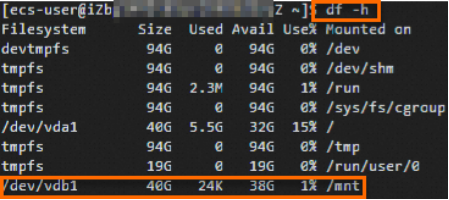文章目录
- 其他人的内容,笔记写的更好,思路可以去看他们的
- MapReduce
- worker
- map
- reduce
- coordinator
- rpc
- 纠错
- 源码
- worker.go
- coordinator.go
- rpc.go
原本有可借鉴的部分
mrsequential.go,多看几遍源码
其他人的内容,笔记写的更好,思路可以去看他们的
MIT - 6.824 全课程 + Lab 博客总览-CSDN博客
MapReuce 详解与复现, 完成 MIT 6.824(6.5840) Lab1 - 掘金 (juejin.cn)
mit 6.824 lab1 笔记 - 掘金 (juejin.cn)
MapReduce
每个 worker 进程需完成以下工作:
向 master 进程请求 task,从若干文件中读取输入数据,执行 task,并将 task 的输出写入到若干文件中。
master 进程除了为 worker 进程分配 task 外,还需要检查在一定时间内(本实验中为 10 秒)每个 worker 进程是否完成了相应的 task,如果未完成的话则将该 task 转交给其他 worker 进程。
worker
worker函数包含map和redicef两个功能
需要知道自己执行哪个功能
worker 请求获取任务 GetTask
任务设置为结构体,其中一个字段为任务类型
type Task struct{Type:0 1 }0为map,1为reduce const枚举
一个为编号
如何获取任务?
GetTask请求coordinator的assignTask方法,传入为自己的信息(???),获得任务信息
自己当前的状态 空闲 忙碌
call(rpcname,args,reply)bool的rpcname对应coordinator.go中coordinator的相关方法
???没理解这个什么用
GetTask中调用call来从coordinator获取任务信息?那么rpc.go来干什么
使用ihash(key) % NReduce为Map发出的每个KeyValue选择reduce任务号。随机选择序号
n个文件,生成m个不同文件 n X m个 文件??
保存多少个文件
对结果ohashkey,写入到文件序号1-10
根据序号分配reduce任务
将结果写入到同一文件
map
mapf func(filename string, content string) []KeyValue
filename是传入的文件名
content为传入的文件的内容——传入前需读取内容
传出intermediate[] 产生文件名 mr-x-y
reduce
reducef func(key string, values []string) string)
这里的key对应ihash生成的任务号??
coordinator
分配任务
需要创建几个map worker—根据几个文件
几个 reduce worker—根据设置,这里为10
coordinator函数用来生成唯一id
Coordinator 结构体定义
用来在不同rpc之间通信,所以其内容是公用的?
type Coordinator struct{ files []string nReduce int 当前处在什么阶段? state } type dic struct{ status 0or1or2 id }map[file string]
如何解决并发问题??
怎么查询worker的状态??
worker主动向coordinator发送信息
rpc
args 请求参数怎么定义
type args struct{
自己的身份信息
自己的状态信息
}
纠错
-
6.5840/mr.writeKVs({0xc000e90000, 0x1462a, 0x16800?}, 0xc00007d100, {0xc39d00, 0x0, 0x0?})
/home/wang2/6.5840/src/mr/worker.go:109 +0x285 -
*** Starting wc test.
panic: runtime error: index out of range [1141634764] with length 0ihash取余
-
runtime error: integer divide by zero
reply.NReduce = c.nReduce // 设置 NReduce
-
cat: ‘mr-out*’: No such file or directory
— saw 0 workers rather than 2
— map parallelism test: FAIL
cat: ‘mr-out*’: No such file or directory
— map workers did not run in parallel
— map parallelism test: FAILcat: ‘mr-out*’: No such file or directory
— too few parallel reduces.
— reduce parallelism test: FAIL
文件句柄问题 -
sort: cannot read: ‘mr-out*’: No such file or directory
cmp: EOF on mr-wc-all which is empty
2024/07/19 11:15:10 dialing:dial unix /var/tmp/5840-mr-1000: connect: connection refused
2024/07/19 11:15:10 dialing:dial unix /var/tmp/5840-mr-1000: connect: connection refused
2024/07/19 11:15:10 dialing:dial unix /var/tmp/5840-mr-1000: connect: connection refused -
coordinator结构体的并发读取问题
dialing:dial-http unix /var/tmp/5840-mr-1000: read unix @->/var/tmp/5840-mr-1000: read: connection reset by peer
源码
由于笔记等提示跟没有没区别,这里将源码放上,等大家实在没办法再看吧,
github仓库地址
注意lab1中的提示很重要
博主初期也迷茫过,检查bug也痛苦过,祝福大家。

有的时候也会出错,但是不想搞了–

worker.go
package mr
import (
"encoding/json"
"fmt"
"io"
"os"
"sort"
"strings"
"time"
)
import "log"
import "net/rpc"
import "hash/fnv"
// for sorting by key.
type ByKey []KeyValue
// for sorting by key.
func (a ByKey) Len() int { return len(a) }
func (a ByKey) Swap(i, j int) { a[i], a[j] = a[j], a[i] }
func (a ByKey) Less(i, j int) bool { return a[i].Key < a[j].Key }
const (
Map = iota
Reduce
Over
)
const (
Idle = iota
Busy
Finish
)
// Map functions return a slice of KeyValue.
type KeyValue struct {
Key string
Value string
}
// use ihash(key) % NReduce to choose the reduce
// task number for each KeyValue emitted by Map.
func ihash(key string) int {
h := fnv.New32a()
h.Write([]byte(key))
return int(h.Sum32() & 0x7fffffff)
}
// main/mrworker.go calls this function.
func Worker(mapf func(string, string) []KeyValue, reducef func(string, []string) string) {
// Your worker implementation here.
Ch := make(chan bool)
for {
var Res = &Args{State: Idle} //初始化为idle状态
var TaskInformation = &TaskInfo{}
GetTask(Res, TaskInformation)
//主任务结束后不再请求
if TaskInformation.TaskType == Over {
break
}
//fmt.Println("do it!")
go DoTask(TaskInformation, mapf, reducef, Ch)
sign := <-Ch
//fmt.Println("sign:", sign)
if sign == true {
//fmt.Println("Finish one,ID:", TaskInformation.TaskId)
Done(Res, TaskInformation)
} else {
//TaskInformation.Status = Idle
//fmt.Println("err one,ID:", TaskInformation.TaskId)
call("Coordinator.Err", Res, TaskInformation)
Res = &Args{State: Idle}
}
time.Sleep(time.Second)
}
// uncomment to send the Example RPC to the coordinator.
//CallExample()
}
func GetTask(Args *Args, TaskInformation *TaskInfo) {
// 调用coordinator获取任务
for {
call("Coordinator.AssignTask", Args, TaskInformation)
//fmt.Println(TaskInformation)
if TaskInformation.Status != Idle {
Args.State = Busy
Args.Tasktype = TaskInformation.TaskType
Args.TaskId = TaskInformation.TaskId
//fmt.Println("TaskInfo:", TaskInformation)
//fmt.Println("Args:", Args)
call("Coordinator.Verify", Args, TaskInformation)
break
}
time.Sleep(time.Second)
}
//fmt.Printf("Type:%v,Id:%v\n", TaskInformation.TaskType, TaskInformation.TaskId)
}
func writeKVs(KVs []KeyValue, info *TaskInfo, fConts []*os.File) {
//fConts := make([]io.Writer, info.NReduce)
KVset := make([][]KeyValue, info.NReduce)
//fmt.Println("start write")
//for j := 1; j <= info.NReduce; j++ {
//
// fileName := fmt.Sprintf("mr-%v-%v", info.TaskId, j)
// os.Create(fileName)
//
// f, _ := os.Open(fileName)
// fConts[j-1] = f
//
// defer f.Close()
//}
var Order int
for _, v := range KVs {
Order = ihash(v.Key) % info.NReduce
KVset[Order] = append(KVset[Order], v)
}
//fmt.Println("kvset:", KVset)
for i, v := range KVset {
for _, value := range v {
data, _ := json.Marshal(value)
_, err := fConts[i].Write(data)
//fmt.Println("data: ", data)
//fmt.Println("numbers:", write)
if err != nil {
return
}
}
}
//fmt.Println("finish write")
}
func read(filename string) []byte {
//fmt.Println("read", filename)
file, err := os.Open(filename)
defer file.Close()
if err != nil {
log.Fatalf("cannot open %v", filename)
fmt.Println(err)
}
content, err := io.ReadAll(file)
if err != nil {
log.Fatalf("cannot read %v", filename)
}
return content
}
// DoTask 执行mapf或者reducef任务
func DoTask(info *TaskInfo, mapf func(string, string) []KeyValue, reducef func(string, []string) string, Ch chan bool) {
//fConts := make([]io.Writer, info.NReduce)
//fmt.Println("start", info.TaskId)
//go AssignAnother(Ch)
switch info.TaskType {
case Map:
info.FileContent = string(read(info.FileName))
//fmt.Println(info.FileContent)
KVs := mapf(info.FileName, info.FileContent.(string))
//fmt.Println("map:", KVs)
//将其排序
sort.Sort(ByKey(KVs))
var fConts []*os.File // 修改为 *os.File 类型
//0-9
for j := 0; j < info.NReduce; j++ {
//暂时名,完成后重命名
fileName := fmt.Sprintf("mr-%v-%v-test", info.TaskId, j)
//_, err := os.Create(fileName)
//if err != nil {
// fmt.Println(err)
// return
//}
//
//f, _ := os.Open(fileName)
//fConts[j-1] = f
//
//defer f.Close()
f, err := os.Create(fileName) // 直接使用 Create 函数
if err != nil {
fmt.Println(err)
return
}
//fmt.Println("creatfile: ", fileName)
//fConts[j] = f
fConts = append(fConts, f)
defer os.Rename(fileName, strings.TrimSuffix(fileName, "-test"))
defer f.Close()
}
writeKVs(KVs, info, fConts)
case Reduce:
fileName := fmt.Sprintf("testmr-out-%v", info.TaskId)
fileOS, err := os.Create(fileName)
//fmt.Println("create success")
if err != nil {
fmt.Println("Error creating file:", err)
return
}
defer os.Rename(fileName, strings.TrimPrefix(fileName, "test"))
defer fileOS.Close()
var KVs []KeyValue
//读取文件
for i := 0; i < info.Nmap; i++ {
fileName := fmt.Sprintf("mr-%v-%v", i, info.TaskId)
//fmt.Println(fileName)
file, err := os.Open(fileName)
defer file.Close()
if err != nil {
fmt.Println(err)
}
dec := json.NewDecoder(file)
for {
var kv KeyValue
if err := dec.Decode(&kv); err != nil {
break
}
//fmt.Println(kv)
KVs = append(KVs, kv)
}
}
//var KVsRes []KeyValue
sort.Sort(ByKey(KVs))
//整理并传输内容给reduce
i := 0
for i < len(KVs) {
j := i + 1
for j < len(KVs) && KVs[j].Key == KVs[i].Key {
j++
}
values := []string{}
for k := i; k < j; k++ {
values = append(values, KVs[k].Value)
}
// this is the correct format for each line of Reduce output.
output := reducef(KVs[i].Key, values)
//每个key对应的计数
//KVsRes = append(KVsRes, KeyValue{KVs[i].Key, output})
fmt.Fprintf(fileOS, "%v %v\n", KVs[i].Key, output)
i = j
}
}
Ch <- true
}
func Done(Arg *Args, Info *TaskInfo) {
//Info.Status = Idle
call("Coordinator.WorkerDone", Arg, Info)
//arg重新清空
Arg = &Args{State: Idle}
}
func AssignAnother(Ch chan bool) {
time.Sleep(2 * time.Second)
Ch <- false
}
// example function to show how to make an RPC call to the coordinator.
//
// the RPC argument and reply types are defined in rpc.go.
func CallExample() {
// declare an argument structure.
args := ExampleArgs{}
// fill in the argument(s).
args.X = 99
// declare a reply structure.
reply := ExampleReply{}
// send the RPC request, wait for the reply.
// the "Coordinator.Example" tells the
// receiving server that we'd like to call
// the Example() method of struct Coordinator.
ok := call("Coordinator.Example", &args, &reply)
if ok {
// reply.Y should be 100.
fmt.Printf("reply.Y %v\n", reply.Y)
} else {
fmt.Printf("call failed!\n")
}
}
// send an RPC request to the coordinator, wait for the response.
// usually returns true.
// returns false if something goes wrong.
func call(rpcname string, args interface{}, reply interface{}) bool {
// c, err := rpc.DialHTTP("tcp", "127.0.0.1"+":1234")
sockname := coordinatorSock()
//fmt.Println("Worker is dialing", sockname)
c, err := rpc.DialHTTP("unix", sockname)
if err != nil {
//log.Fatal("dialing:", err)
return false
}
defer c.Close()
err = c.Call(rpcname, args, reply)
if err != nil {
//fmt.Println(err)
return false
}
return true
}
coordinator.go
package mr
import (
"log"
"sync"
"time"
)
import "net"
import "os"
import "net/rpc"
import "net/http"
type Coordinator struct {
// Your definitions here.
files []string
nReduce int
MapTask map[int]*Task
ReduceTask []int
OK bool
Lock sync.Mutex
}
type Task struct {
fileName string
state int
}
var TaskMapR map[int]*Task
func (c *Coordinator) Verify(Arg *Args, Reply *TaskInfo) error {
switch Arg.Tasktype {
case Map:
time.Sleep(3 * time.Second)
if c.MapTask[Arg.TaskId].state != Finish {
c.MapTask[Arg.TaskId].state = Idle
Reply = &TaskInfo{}
}
case Reduce:
time.Sleep(3 * time.Second)
if c.ReduceTask[Arg.TaskId] != Finish {
c.ReduceTask[Arg.TaskId] = Idle
Reply = &TaskInfo{}
}
}
return nil
}
// Your code here -- RPC handlers for the worker to call.
func (c *Coordinator) AssignTask(Arg *Args, Reply *TaskInfo) error {
c.Lock.Lock()
defer c.Lock.Unlock()
//如果请求为空闲
if Arg.State == Idle {
//Args.State = Busy
//首先分配Map
for i, task := range c.MapTask {
//fmt.Println(*task, "Id:", i)
if task.state == Idle {
//Arg.Tasktype = Map
//Arg.TaskId = i + 1
Reply.TaskType = Map
Reply.FileName = task.fileName
//fmt.Println(task.fileName)
Reply.TaskId = i //range从0开始
Reply.NReduce = c.nReduce // 设置 NReduce
Reply.Status = Busy
task.state = Busy
//fmt.Println("map,Id:", i)
return nil
}
}
//Map完成后再Reduce
for _, task := range c.MapTask {
if task.state != Finish {
//fmt.Println("等待Map完成")
return nil
}
}
//fmt.Println("MapDone")
//分配Reduce
for i, v := range c.ReduceTask {
//fmt.Println(c.ReduceTask)
if v == Idle {
Arg.Tasktype = Reduce
Arg.TaskId = i
Reply.TaskType = Reduce
Reply.TaskId = i
Reply.NReduce = c.nReduce // 设置 NReduce
Reply.Status = Busy
Reply.Nmap = len(c.files)
c.ReduceTask[i] = Busy
//fmt.Println(c.ReduceTask[i])
//fmt.Println("reduce", i)
return nil
}
}
//Reduce都结束则成功
for _, v := range c.ReduceTask {
if v == Finish {
} else {
return nil
}
}
Reply.TaskType = Over
c.OK = true
}
return nil
}
func (c *Coordinator) WorkerDone(args *Args, reply *TaskInfo) error {
//c.Lock.Lock()
//defer c.Lock.Unlock()
//reply清空
reply = &TaskInfo{}
//args.State = Finish
id := args.TaskId
//fmt.Println("id", id)
switch args.Tasktype {
case Map:
c.MapTask[id].state = Finish
//fmt.Println(*c.MapTask[id])
case Reduce:
c.ReduceTask[id] = Finish
//fmt.Println(c.ReduceTask)
}
return nil
}
func (c *Coordinator) Err(args *Args, reply *TaskInfo) error {
//c.Lock.Lock()
//defer c.Lock.Unlock()
reply = &TaskInfo{}
id := args.TaskId
switch args.Tasktype {
case Map:
if c.MapTask[id].state != Finish {
c.MapTask[id].state = Idle
}
case Reduce:
if c.ReduceTask[id] != Finish {
c.ReduceTask[id] = Idle
}
}
return nil
}
// an example RPC handler.
//
// the RPC argument and reply types are defined in rpc.go.
func (c *Coordinator) Example(args *ExampleArgs, reply *ExampleReply) error {
reply.Y = args.X + 1
return nil
}
// start a thread that listens for RPCs from worker.go
func (c *Coordinator) server() {
rpc.Register(c)
rpc.HandleHTTP()
sockname := coordinatorSock()
os.Remove(sockname)
l, e := net.Listen("unix", sockname)
if e != nil {
log.Fatal("listen error:", e)
}
//fmt.Println("Coordinator is listening on", sockname)
go http.Serve(l, nil)
}
// main/mrcoordinator.go calls Done() periodically to find out
// if the entire job has finished.
func (c *Coordinator) Done() bool {
//c.Lock.Lock()
//defer c.Lock.Unlock()
ret := false
if c.OK == true {
ret = true
}
// Your code here.
return ret
}
// create a Coordinator.
// main/mrcoordinator.go calls this function.
// nReduce is the number of reduce tasks to use.
func MakeCoordinator(files []string, nReduce int) *Coordinator {
//fmt.Println(files)
TaskMapR = make(map[int]*Task, len(files))
for i, file := range files {
TaskMapR[i] = &Task{
fileName: file,
state: Idle,
}
}
ReduceMap := make([]int, nReduce)
c := Coordinator{
files: files,
nReduce: nReduce,
MapTask: TaskMapR,
ReduceTask: ReduceMap,
OK: false,
}
// Your code here.
c.server()
return &c
}
rpc.go
package mr
//
// RPC definitions.
//
// remember to capitalize all names.
//
import "os"
import "strconv"
//
// example to show how to declare the arguments
// and reply for an RPC.
//
type ExampleArgs struct {
X int
}
type ExampleReply struct {
Y int
}
// Add your RPC definitions here.
type Args struct {
State int
Tasktype int
TaskId int
}
type TaskInfo struct {
Status int
TaskType int //任务基本信息
TaskId int
NReduce int
Nmap int
FileName string
FileContent any
//Key string //reduce所需信息
//Values []string
}
// Cook up a unique-ish UNIX-domain socket name
// in /var/tmp, for the coordinator.
// Can't use the current directory since
// Athena AFS doesn't support UNIX-domain sockets.
func coordinatorSock() string {
s := "/var/tmp/5840-mr-"
s += strconv.Itoa(os.Getuid())
return s
}


















